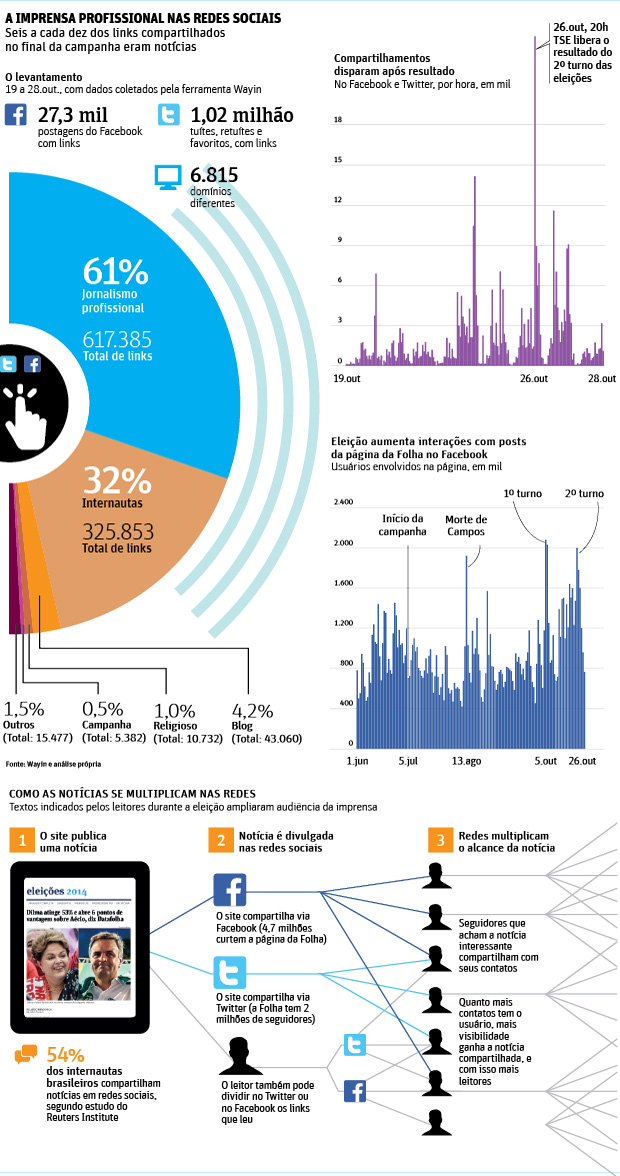Latest Photo Galleries
Brazilian Markets
18h30 Bovespa |
-1,12% | 125.924 |
16h43 Gold |
0,00% | 117 |
17h00 Dollar |
+1,50% | 5,1920 |
16h30 Euro |
+0,49% | 2,65250 |
ADVERTISING
Professional Journalism Widespread on Social Networks
11/10/2014 - 08h52
Advertising
FROM SÃO PAULO
Professional journalism was predominant among the links shared by users on social networks during the elections in October.
That is the result of a survey by Folha based on posts of links on Facebook and Twitter during the ten days after the elections, when social networks registered record-breaking interactions among their users.
The result shows that 61% of the links shared by users came from content published by the professional media - newspapers, portals, TV programs, radio, local news websites or the international press.
On the two days following the elections, the number rose to over 70% of the links shared.
"We can say for certain that, if there is no media, there is no social media," says Luli Radfahrer, a researcher at USP and Folha columnist.
He says the debates on the internet arise from professional news coverage, which are debated or criticized by users.
However, he notes that the role of the press is not over after the news is published. "The press is no longer the owner of the story - it is the starter of the conversation."
Blogs without professional journalistic production had 4.2% of the links shared. More than that, nearly one third of the links shared was from texts or images originally published on tweets or Facebook pages.
In the 2014 elections, there was a profusion of campaign websites intended precisely to be shared on social networks, such as "Muda Mais," which supported President Dilma Rousseff of the PT, and the official website of the PSDB's Aécio Neves.
The proliferation of texts originally published on social networks is related to another phenomenon: the increase in the use of mobile devices, especially smartphones, to obtain information.
That increases the speed as well as the informality of the information on social networks.
"Quick access means fast circulation, and that is not always positive, as we have observed in the rumors that are spread," says André Lemos, a researcher of cyber culture at the Federal University of Bahia (UFBA).
The real Chinese Whispers game made possible by the quick interaction on mobiles has led to an increase in rumors, such as that about the alleged death of money dealer Alberto Youssef.
A text on WhatsApp on the night before the election (October 26) said he had been poisoned to eliminate witnesses. It was not true.
When rumors are spread, users rely on the professional press to verify if the information is true.
Translated by THOMAS MUELLO
Read the article in the original language
| Editoria de arte/Folhapress | ||
 |



